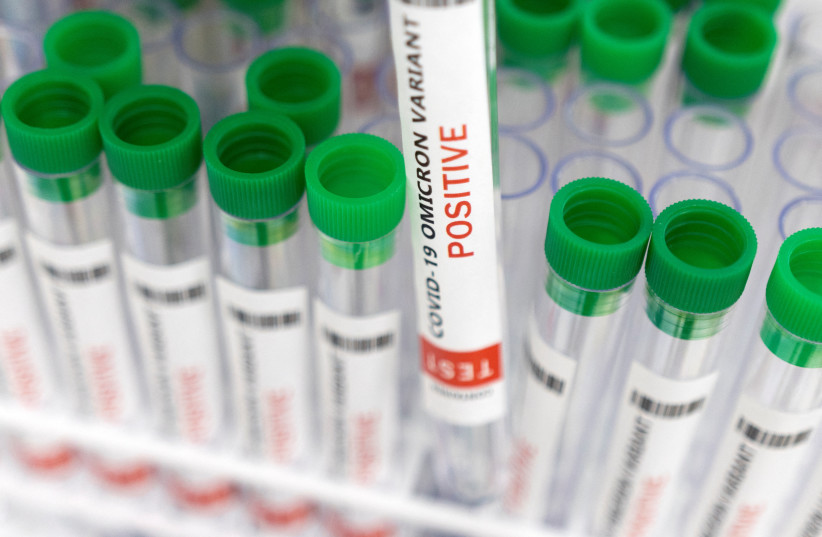Reports of people being infected with coronavirus a second time are now quite common. What increases the chance of reinfection with the virus, and is it possible to be infected for a third and even fourth time too? The answers are here, and you won’t like them.
From popular singers Noa Kirel and Shlomi Shabbat to the assistant in your child’s kindergarten, many people in our lives have had COVID-19 more than once, especially with the Omicron variant. Infection and recovery from a virus is supposed to produce natural immunization in our bodies because the immune system is already familiar with the virus and therefore has specific memory cells that can quickly detect the virus and not allow it to replicate in the body again. Why, then, are so many people being reinfected with COVID-19?
What is reinfection?
Reinfection is getting sick with a virus a second or third time, not dependent on the strain. Various factors cause reinfection. For example, data indicates that in unvaccinated people, there’s a greater chance of being infected more than once in contrast to those vaccinated. Also, it’s possible that those who contracted it very easily the first time are at risk of getting it again because the initial infection didn’t elicit a strong enough immune response.
Different variants have different chances of reinfection. If you had Delta, you are more likely to be reinfected from exposure to the Omicron strain because it’s different. If you had Omicron, however, you’re less likely to be infected again.

If you’re vaccinated, the length of time that has elapsed since you received your last dose also affects the risk of infection. Usually, reinfection will be considered as such only if it occurred after 90 days or more from the first infection; this is to exclude from the statistics people who take longer to recover and for the viral load to leave their bodies, leading to them potentially testing positive for weeks after that initial infection.
It’s difficult to say exactly how many verified recurrences have occurred. To prove this with a scientific level of accuracy, there must be a genetic sequencing of the virus that infected a person the first time, then sequencing of the second viral infection and comparing them. These procedures are quite expensive and require so many resources that these tests aren’t practical.
Prof. Danny Altmann, a lecturer in immunology at Imperial College London, in an interview with the Guardian said that combining a two-year-long pandemic along with a decline in antibodies plus the outbreak of the Delta and Omicron strains even after people are vaccinated means that there’s a significant chance of reinfection.
Are some strains easier to be infected with again?
The short answer is yes. Scientists from Imperial College London calculated, after deducting and weighing other factors, that Omicron is associated with a 4.38-6.63-fold higher risk of reinfection compared to Delta. They say that this means that the protection against infection for those who were sick and recovered in the last six months has fallen from 85% before the emergence of Omicron to a rate of 0-27%. The sharp drop in defense is not surprising in light of what is already known about the viral structure of Omicron and its impressive ability to elude the body's defense systems.
Will being reinfected be easier?
Logic says that reinfection with the virus will cause a milder illness, and data shows that the viral load in subsequent infections is lower compared to previous ones. However, the severity of the symptoms and the illness also depend on other factors such as the patient's immune status and the characteristics of the infectious strain.
Data from the UK, for example, shows that as the Alpha variant (remember that one?) became the dominant strain, recurrent infections manifested themselves in fewer symptoms, but the situation was reversed when Delta became dominant. Omicron data now indicates that the chance of experiencing symptoms in the second infection is quite similar to the chance in the first infection. So the answer to this question isn’t unequivocal.
How many times can you get infected with coronavirus?
As mentioned, reports of people who have been sick twice are already quite common, and there are also reports of people being infected three and even four times (though much fewer). It's hard to say how many times it’s possible to be infected. What’s certain is that the longer the epidemic lasts and stays in the environment, the higher the chance and number of reinfections.
